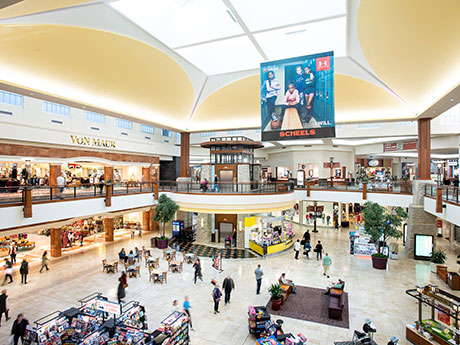By Tricia Pitchford and Amy Senn, Mid-America Real Estate
A strong regional economy continues to propel the retail real estate market in Minneapolis heading into the fall. Unemployment remains lower than the national average, though up from last year’s remarkable sub-2 percent. New jobs are being created at a nice clip.
At the same time, retail real estate space is tight, with limited new construction. Well-located spaces are being re-tenanted quickly. The same is generally true for B and C locations. Rents are flat to increasing. Higher construction costs continue to hamper tenant expansion.

Although the macroeconomy is slowing, consumers are proving resilient, with a large appetite (pun intended) for quick-service restaurants and personal services, in particular.
Where’s the most action?
Suburban trade areas are seeing most of the activity across the metro area. Maple Grove, Woodbury, Edina and Roseville are among the strongest submarkets. A couple of urban trade areas, namely the North Loop warehouse district and Northeast Minneapolis, stand out for their growing appeal as arts, entertainment and dining districts. (Yes, we have hipsters in the Twin Cities.)
Generally infill and redevelopment opportunities are more time-consuming and costly to execute than ground-up development, but that’s not stopping the activity in these attractive urban pockets.

The northeastern part of the metro area saw the most leases signed in the second quarter, with 145,925 square feet leased, according to the Minneapolis Commercial Association of Real Estate/Realtors.
Variety of tenants
A wide variety of retailers and other tenants are expanding in the market. Among the entertainment concepts opening new locations are Puttery (mini-golf) and Smash Park (pickleball). Stumpy’s Hatchet House and Level99, which takes in-person interactive games and challenges to a new level, are looking for sites.
Restaurants expanding include Dave’s Hot Chicken and Raising Cane’s, salad specialists Crisp & Green and Sweetgreen, as well as Crumbl Cookies, Scooter’s Coffee, Snooze and Sweet Paris Creperie.
Swim schools providing lessons for kids are in growth mode as well, with Big Blue, Bear Paddle, Foss and Goldfish expanding in the market. Car washes (Mister, Club Car Wash and Tidal Wave) are growing fueled by subscription products, and personal fitness and health and wellness companies Basecamp and Solidcore are flexing their muscles in the Minneapolis area.
At the same time, innovative retailers including pOpshelf, Rally House and Fanatics are scoping new locations, a reminder that well-merchandised stores are alive and well and being reinvented every day, including in our market.
Investment sales volume
Not surprisingly given the continued rise in interest rates, retail investment property sales volume declined significantly from the first half of 2022 to the first half of 2023.
Last year was an exceptional year, though, with over $1 billion of sales in the Minneapolis metro area in 2022. Viewed in the context of the last 10 years, sales volume is simply normalizing.
Notably, cap rates haven’t directly correlated to increased interest rates. Supply and demand constraints — and high investor demand for properties that have hit the market — are the reason why. The supply of on-market properties is low; owners who aren’t in distress are choosing to wait until interest rates decline to list their properties for sale.
That said, cap rates vary between asset classes and even subcategories of product types. Though with sales volume low, cap rate data is hard to come by making it challenging to determine market pricing. Ultimately, it’s all about the individual asset and what it will fetch on the open market.
Looking ahead, we see the level of investment sales inventory gradually rising and expect a higher level of deal flow for the second half of 2023 and into next year. Equity for investment in quality properties is widely available, though debt is becoming more challenging to secure as banks grapple with higher reserve requirements and other rules that may constrain lending.
Tricia Pitchford is a principal and senior vice president of leasing while Amy Senn is a vice president of investment sales with Mid-America Real Estate. This article originally appeared in the September 2023 issue of Heartland Real Estate Business magazine.


